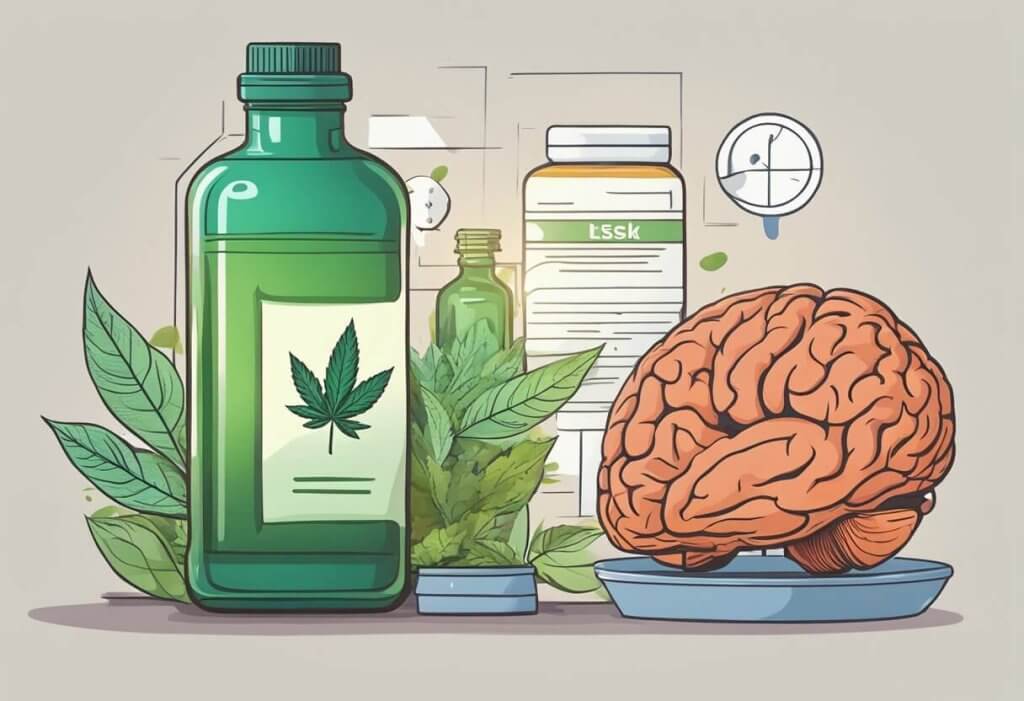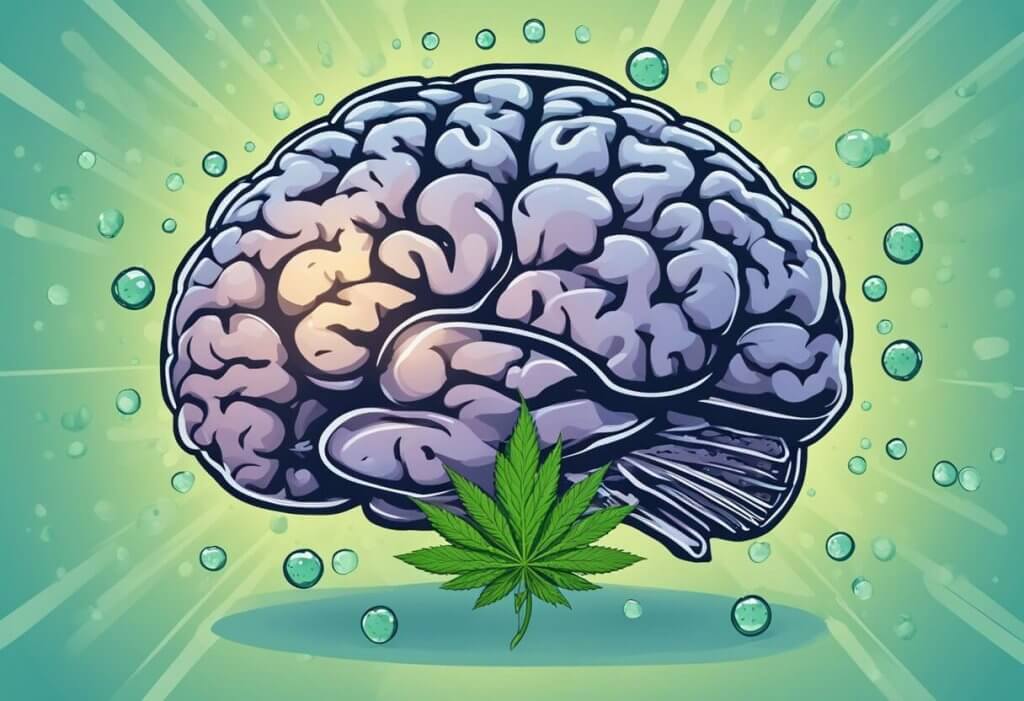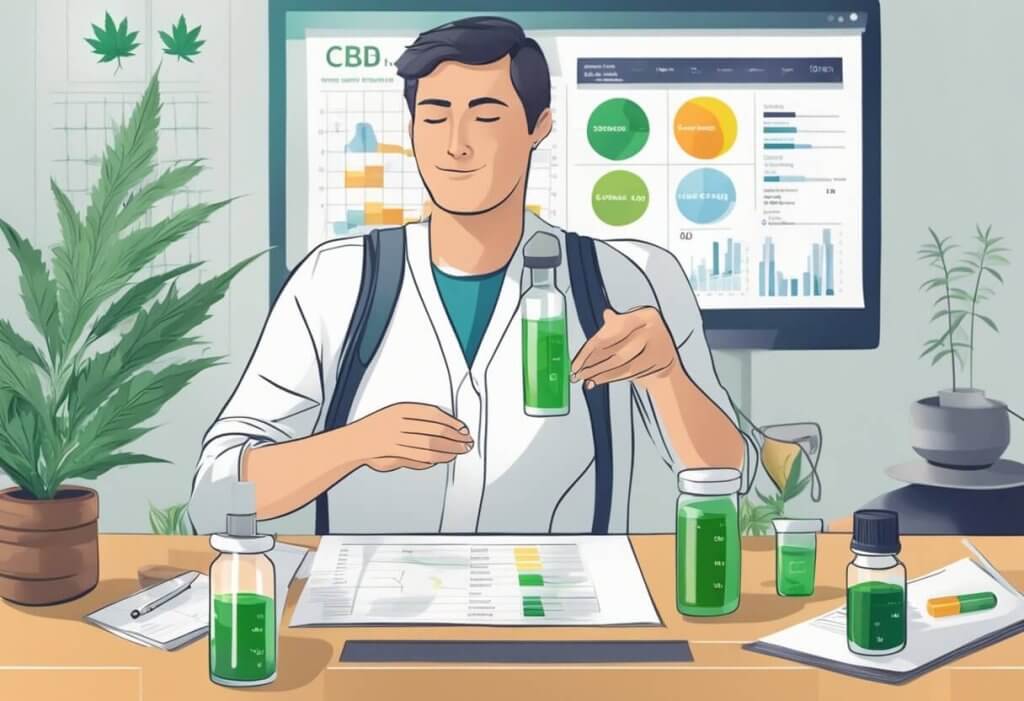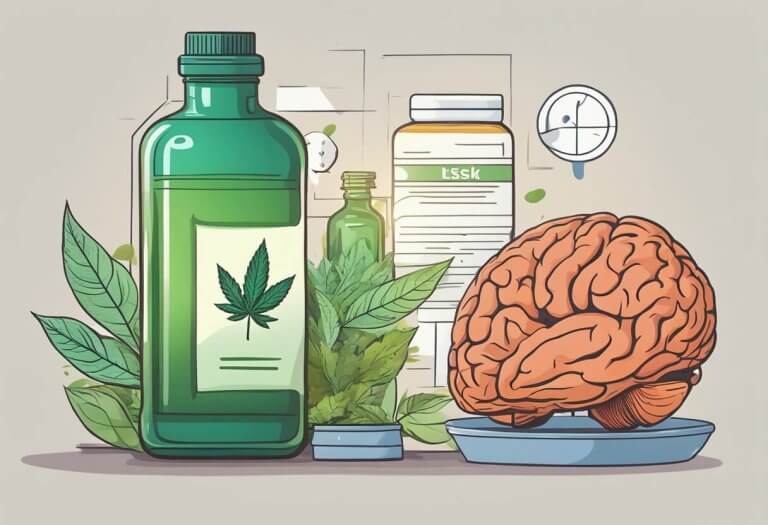Exploring the Potential Health Benefits
Disclaimer: The anecdotal benefits of CBD mentioned on this website are based on preliminary research and individual user experiences. All information presented here is not meant to substitute for or replace information from health care practitioners. Please click here for our full disclaimer, including side effects, FTC position, etc.
For those grappling with the side effects of steroid treatments, a growing number are turning to CBD as a potential solution.

If you or a loved one rely on steroids to manage a chronic condition, you’re likely all too familiar with the unwanted side effects that often accompany these powerful medications. From weight gain and mood swings to more serious complications like osteoporosis and diabetes, the long-term use of steroids can take a toll on both physical and mental well-being.
But what if there was a natural alternative that could help reduce the need for steroids without compromising the effectiveness of treatment? Enter CBD, or cannabidiol, a non-psychoactive compound derived from the hemp plant that has been making waves in the medical community for its potential CBD benefits. With its anti-inflammatory, pain-relieving, and immune-modulating properties, CBD is emerging as a promising adjunct therapy for those looking to minimize their reliance on steroids.
Join us as we dive deeper into the science behind CBD and explore how this versatile compound may help you or your loved one navigate the challenges of steroid treatment, offering hope for a more balanced, sustainable approach to managing chronic conditions.
Key Takeaways
- CBD research suggests potential in improving cerebral blood flow.
- Anecdotal evidence points to CBD offering multi-faceted health benefits.
- Ongoing studies are crucial for validating CBD’s efficacy in stroke risk reduction.
Understanding Stroke and CBD

In exploring the intersection of stroke and CBD, it’s important to consider how cannabinoids may influence stroke risk and recovery.
Research on CBD, a component of cannabis with no psychoactive effects, is shedding light on its potential impact on stroke types and neuroprotection.
Types of Strokes and the Role of Cannabinoids
Strokes occur primarily in two forms: ischemic and hemorrhagic. Ischemic strokes, in which blood flow is obstructed, are the most common.
Hemorrhagic strokes involve bleeding in the brain. A Transient Ischemic Attack (TIA), often called a mini-stroke, is a temporary blockage with short-lived symptoms. Cannabinoids, including CBD, are being studied for their neuroprotective properties, which might benefit stroke victims.
CBD’s Effects on the Brain and Blood Flow
CBD has shown potential to affect the brain in several ways. It’s thought to offer neuroprotective effects, which could help shield brain cells from damage during a stroke. Research indicates that CBD might also promote better blood flow, potentially reducing the risk of stroke-related damage.
Fact: CBD has been shown to have antioxidant and anti-inflammatory properties that may offer neuroprotective effects against stroke. However, its impact on overall stroke risk is still being researched.
https://www.ncbi.nlm.nih.gov/pmc/articles/PMC4036658/
The Science Behind Cannabis and Stroke Prevention
While the idea that cannabinoids could help prevent strokes is intriguing, evidence is still emerging. Some studies suggest that CBD could lower the risk of stroke by addressing key factors like blood pressure and inflammation.
Yet, it’s crucial to understand that research is ongoing, and while CBD’s therapeutic potential holds promise, scientists are working to fully uncover its role in stroke prevention and recovery.
For further reading, detailed insights into the potential of CBD in reducing blood pressure and CBD’s therapeutic time window for ischemic stroke offer a look into the complexity of cannabis’ role in stroke medicine.
“While CBD may help limit the extent of brain damage after a stroke occurs, the research on its ability to prevent strokes is still quite limited and mixed. More study is needed.”
Dr. Rachel Gamper, neuroscientist at University of Maryland
CBD for Stroke Patients
Exploring the benefits of CBD may offer a new angle for post-stroke treatment and recovery.
While some patients might consider CBD oil as a complementary approach, it’s important to weigh potential risks and understand the legal status of these products.

Post-stroke Recovery and CBD’s Impact
The aftermath of a stroke can be daunting, with individuals facing challenges like depression and anxiety. Compounds like CBD are being researched for their possible neuroprotective effects.
In animal studies, it’s shown promising results in increasing cerebral blood flow, which is critical for recovery. Furthermore, CBD has been linked to reducing oxidative damage, potentially safeguarding neurons from post-stroke damage.
Potential Risks and Considerations for Stroke Patients Using CBD
While the prospect of using CBD for stroke recovery is intriguing, patients should be mindful of medication interactions and possible side effects. Though CBD is considered relatively safe, it may interact with other medications a stroke patient is taking. Always consult healthcare providers before starting any new post-ischemic treatment, ensuring safety and appropriate management of any condition.
Legality and Accessibility of CBD for Treatment
In the UK, patients may be curious about the legality and accessibility of CBD. The FDA has approved products containing CBD, such as Epidiolex and Sativex, for certain medical conditions, marking a significant step in recognizing the medicinal potential of cannabinoids. Access to these treatments may vary, but they represent a new frontier in managing the effects of stroke and improving patients’ quality of life.
Promising Study: A 2022 study on rodent models found that CBD treatment reduced the size of brain infarcts after an induced stroke. However, human studies are still needed
https://cannabishealthnews.co.uk/2022/01/24/new-studies-examine-if-thc-or-cbd-could-have-an-effect-on-strokes/
Frequently Asked Questions
Exploring the intersection of CBD and stroke recovery, this section answers common questions about CBD’s potential benefits and drawbacks for stroke patients.
Are there any benefits of CBD for post-stroke recovery?
CBD has been recognized for its potential to alleviate symptoms such as pain and muscle problems, which are common after a stroke. Some believe that legal cannabis-based products containing CBD may help with these post-stroke challenges because they do not contain the psychoactive THC but still offer therapeutic benefits.
Could regular CBD use help with managing spasticity after a stroke?
There is interest in CBD as a means to manage spasticity, a condition often experienced by stroke survivors. While research is ongoing, some anecdotal evidence suggests that CBD might help relax muscles and, as a result, could potentially ease spasticity symptoms in some patients.
Is there evidence to support CBD aiding in aphasia treatment?
Research on CBD’s effectiveness for treating aphasia, a language disorder that can result from a stroke, is limited. Currently, scientific support for CBD use in aphasia treatment is inconclusive, and more studies are needed to confirm any potential benefits.
Are there any potential medical drawbacks of using CBD for stroke patients?
Stroke patients considering CBD should be aware of possible medical drawbacks, including drug interactions and the lack of standardized dosing guidelines. It’s important to consult healthcare providers before starting CBD, particularly for stroke survivors on other medications.
How might CBD influence recovery from an ischemic stroke?
Blood flow to the brain is blocked during ischemic strokes. There is some scientific interest in CBD’s vasodilatory effects, which might improve blood flow by widening blood vessels. However, concrete evidence supporting CBD as a treatment to enhance ischemic stroke recovery is still developing.

